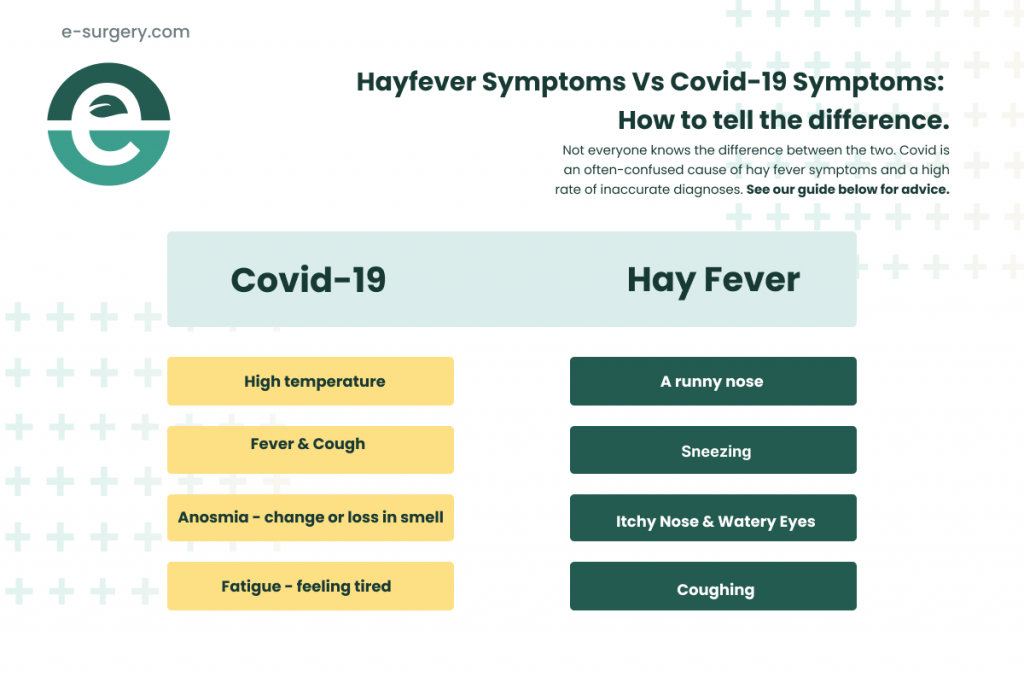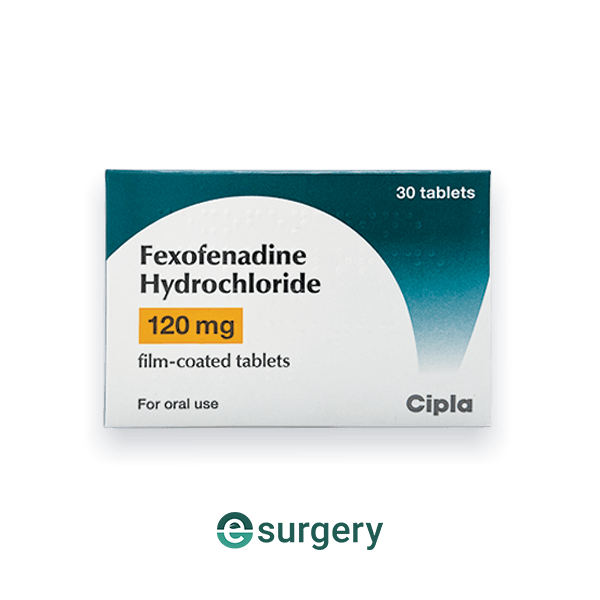
According to NHS, In the UK, more than 1 in 4 people suffer from allergies at least once in their lives. In this article, we will explore hay fever symptoms vs covid symptoms.
Hay fever is a seasonal phenomenon that many people suffer from. Although not life-threatening, it still can be quite uncomfortable to deal with, and when coupled with other symptoms, it can make hay fever sufferers very miserable. There are many different symptoms of hay fever, but one of the most common symptoms is an itchy nose that dries and swells during pollen shifts.
Covid-19 is a lot more serious than hay fever, but not everyone knows the difference between the two. Covid is an often-confused cause of hay fever symptoms and a high rate of inaccurate diagnoses, so what are the differences when it comes to hay fever symptoms vs. covid symptoms?
What Is Hay-Fever?
Hay fever is a condition in which the immune system overreacts to pollen, triggering symptoms such as sneezing, itchy eyes, and a runny nose. [1] Hay fever or seasonal allergic rhinitis is an allergic reaction to substances in the air, such as pollen, dust, or animal hair. Some people may have mild symptoms while others may have more severe symptoms such as a cough or wheezing, which are usually worse in the spring and summer months. Check out our hay fever pollen guide to find out which plants are most likely to cause allergies.
If you think that you might have hay fever, it is important to see your doctor and get tested for allergies. Your doctor will be able to diagnose the condition and prescribe treatment if necessary.
Hay Fever Symptoms Vs. Covid Symptoms Compared
Symptoms of hay fever include:
- A runny nose
- Sneezing
- Sniffling
- Itchy nose
- Watery eyes
- Coughing
Hay fever symptoms can be caused by different things such as pollen, bacteria or mould found in dust or mites found in animals such as cats or dogs. In rare cases, severe hay fever can result in headaches and tiredness. Hay fever can last for weeks or months in contrast to colds, which only last for 1-2 weeks. [2]

Covid-19 symptoms include:
- High temperature
- Fever
- Coughing
- Anosmia – change or loss in smell
- Fatigue – feeling tired
- Headaches
- Sore throat
- Diarrhoea
Some evidence suggests that covid has been connected to erectile dysfunction and acid reflux.
Hay Fever Available Treatment
There are various treatments for hay fever that you can use to get relief from the symptoms, including:
- Telfast Tablets
- Fexofenadine Tablets
- Beconase Nasal Spray (find the best nasal spray for you!)
- Sodium Cromoglicate 2% Eye Drops
 |
 |
 |
|
In addition, you can also check out E-Surgery’s recommended home remedies for hay fever.
It’s important to talk to your doctor before starting any new medication.
How To Stay Safe From COVID-19
Covid-19 is a very contagious virus that can be spread through contact with droplets from the nose, mouth and throat of an infected person. [3] It can also be transmitted indirectly through contact with contaminated surfaces and objects.
Here are some of the tips for staying safe from Covid-19:

- The first line of defence against the coronavirus is to wash your hands regularly and use Antibacterial Hand Gel.
- Wear a face mask when you are in public places like hospitals, shopping malls, etc.
- Take paracetamol for fever and aches if you have been exposed to COVID-19.
- Drink lots of fluids to avoid becoming dehydrated during a fever or diarrhoea episode which can lead to dehydration.
- Avoid contact with anyone who has symptoms of an infection, including children and adults.
- If you have a fever or are suffering from diarrhoea, stay at home and keep your windows and doors closed.
- Follow the up to date government guidance if you suspect that you have tested positive for coronavirus or have been exposed to it.
You can also purchase a COVID-19 Lateral Flow Rapid Test Kit from e-Surgery if you suffer from Coronavirus symptoms.
It’s recommended to read Government advice on what to do if you have covid.
Hay Fever Symptoms Vs Covid Symptoms
The symptoms of allergies are different for everyone. Some people may have a runny nose, sneezing, or a stuffy nose. Others may have skin reactions like hives or eczema. Allergies can also cause asthma, which is a common chronic disease. [4]
In contrast to allergies, coronavirus has different symptoms like fever and cough that last up to two weeks and then generally go away on their own.
How Do I Know If It’s Hayfever Or COVID-19?
Some people confuse the two, but there are things to consider when comparing hay fever symptoms vs. covid symptoms. Hayfever is a type of allergy whereas Covid-19 is a virus.
If you want to test Coronavirus at home, we have a COVID-19 Test Kit available at E-Surgery. You can also get these tests online or from a local pharmacy.
 |
|
Buy Lateral Flow Tests Here
|
Hay Fever Symptoms vs Covid Symptoms Overview
The article has reviewed the difference between the symptoms of hay fever and Covid.
Hay fever is caused by an allergy to pollen while coronavirus is a respiratory infection that can lead to symptoms like a sore throat, cough, and high fever. Hay fever is a seasonal allergy also known as allergic rhinitis and can be managed with medication, but it can be severe if not treated.
There are several treatments available for both but it is important to know what your symptoms are before you go in for treatment.
Sources
- About Hay Fever | NHS UK
- Hay Fever Lasts Longer | NHS UK
- Transmission Of COVID-19 | NCBI
- Allergy-induced Asthma | Healthline
Further Reading
- How do I tell the difference between Hay fever and COVID-19? | Rotheram CCG
- Is it hay fever or COVID-19? | ZOE Covid Study
- COVID-19, cold, allergies and the flu: What are the differences? | MAYO Clinic








